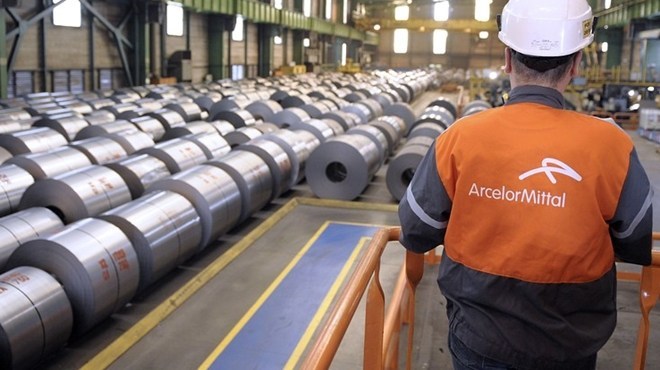The National Union of Metalworkers of South Africa (NUMSA) is set to have a consultation meeting with the management of ArcelorMittal South Africa (AMSA) on July 22 to negotiate the planned retrenchments by the company. AMSA had announced on July 10 that almost 23% of the 8,769 employees in its South African workforce may be retrenched.
While AMSA has stated economic difficulties as the reason for retrenchments, NUMSA believes that the company has a retributive motive against the workers who went on strike in March. They had demanded that the company stop misusing the loopholes in the law to avoid giving the status of permanent employees to qualified workers.
AMSA, the largest steel producer in the world, is owned by Lakshmi Mittal, a billionaire of Indian origin. The company employs about 300,000 workers globally.
Last week, AMSA made the announcement about retrenchment hours after it informed the media that the union had received a notice from the company. “The management at AMSA informed the media first, and did not bother to inform the union until much later. For this, they must be strongly condemned,” NUMSA said in its statement.
Further, NUMSA also drew attention to the contradictory statements made by AMSA to the media and in its notice to the union. The latter stated that “it is difficult to estimate the exact number of employees who may eventually be affected by the proposed restructuring, as this is subject to the outcome of the consultation process, and the consideration of alternative measures.”
However, the company’s statement published in newspapers read, “A large-scale restructuring is contemplated, and it is anticipated that in excess of 2,000 positions [full-time equivalents] may be affected. The final outcome and number of positions affected is subject to a formal consultation process.”
This decision of the company to determine the numbers prior to the scheduled consultation with the union, “is another example of the flagrant disregard which the management of AMSA has for workers and their right to due process,” NUMSA noted.
NUMSA fears that the real number of retrenchments is likely to be much higher. The company has reviewed a number of tenders that it has given to what the AMSA refers to as “service providers”, who are in effect contractors or labor brokers. The workers hired through brokers work for lesser pay than permanent employees and do not receive the same benefits despite doing the same tasks.
A landmark constitutional court judgement last year makes any worker employed through a labor broker or contractor for R 205,000 (USD 14,107) a year or less eligible to acquire the status of a permanent employee after three months of work.
In order to contravene this law, AMSA referred to these labor brokers as “service providers” that independently source workers for the company.
“A simple desktop search reveals that both these “service providers” are owned by VESCO, whose entire board is chosen by ArcelorMittal management. These “service providers” use the same headquarters and email address as ArcelorMittal for their day to day work. ArcelorMittal is essentially outsourcing from itself, to itself,” NUMSA stated in a memorandum handed to the Indian High Commission in April.
“It is obvious that the company is exploiting a loophole in the law in order to avoid making workers permanent,” the memorandum added, asking the Indian government to intervene to ensure that its citizens do not violate the labor laws in foreign countries.
NUMSA has alleged that this decision to sack more than 2,000 workers has a retributive motive. “It.. comes as no surprise that the management of AMSA is proceeding with this course of action, just a few months after our members embarked on a strike,” the union said. It added that it would do everything in its capacity to minimize the number of jobs that will be lost.
AMSA, on its part, has stated that due to costs beyond its control, such as that of electricity, railways, etc., the company is forced to undertake retrenchments. It is expected to report a loss for the first half of this year and has estimated that its earnings will drop by around R 650 million (USD 46.68 million).
At the root of the increasing costs is hike in electricity prices by the state-owned Eskom, which was forced to do so because the government refused to provide it the required assistance, said the deputy general secretary of Solidarity, Marius Croucamp. The government has shown many indications of an agenda to privatize this entity.
Reports in the financial press have also pointed out that a slump in the domestic market is one of the major factors behind the retrenchment. An unemployment level of over 26.5% – 37.2%, if the ‘discouraged work seekers are included in this category, explains the slump in domestic market. The slump, by the logic of capitalism, in turn necessitates a further retrenchment, shrinking the domestic market further.
Calling on stakeholders to intervene immediately, Solidarity has warned that if the retrenchments in AMSA are not stopped, “more and more companies will have to face retrenchments.”





